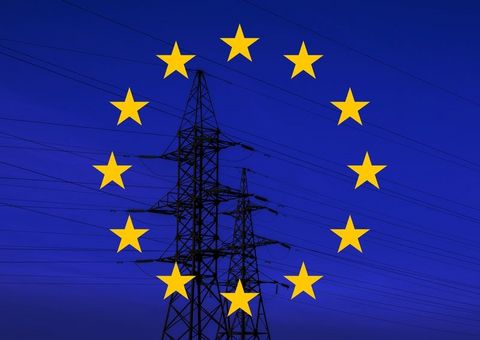Europe's plan for more stable electricity prices

BRUSSELS - The European Union proposed reforms to Europe's electricity markets on Tuesday to shift to more long-term, fixed-price contracts to make consumers' bills less tied to volatile fossil fuel prices.
The European Commission pledged last year to reassess the power market rules after Russia cut gas supplies to Europe, leading to record-high energy prices and supply concerns.
EU countries and the European Parliament will now negotiate and approve the reforms. Here's what they include.
STABLE POWER PRICES
The aim is to leave consumers less exposed to short-term swings in fossil fuel prices and ensure increased low-cost renewable electricity generation translates into lower bills.
The Commission said countries should do that by using more long-term contracts that lock in fixed prices.
All public support for new investments in wind, solar, geothermal, hydropower and nuclear electricity, for example, must be provided via two-way contracts for difference (CfD).
CfDs offer generators a fixed "strike price" for their electricity, regardless of the price in short-term energy markets. If high market prices mean the generator receives extra revenue, the Commission said those proceeds would be shared among consumers.
The reforms would require countries to support power purchase agreements - another type of long-term contract where a consumer directly buys electricity from a generator - with state guarantees.
The proposal would also form virtual hubs that pool trading on forward electricity contracts in a large region - potentially multiple countries. The hope is that if forward markets are more liquid, suppliers will use them to hedge their long-term price exposure.
CUSHIONING CONSUMERS
The proposal would strengthen protections for consumers. For the first time, all EU countries would be obliged to protect vulnerable consumers from being cut off by electricity suppliers if they cannot pay their bills.
Billpayers would also gain the right to request a fixed-price contract from any large electricity supplier, to help them to avoid tariffs tied to volatile energy markets. Currently, EU consumers only have the legal right to request a variable price contract.
If energy prices spike to extreme levels, governments would also be able to temporarily fix the price of a share of consumers' and small businesses' electricity consumption, to tame their bills.
The Commission gave three options that would count as a price crisis allowing this intervention, including a more than 70% jump in consumers' electricity prices that are expected to persist for at least six months.


